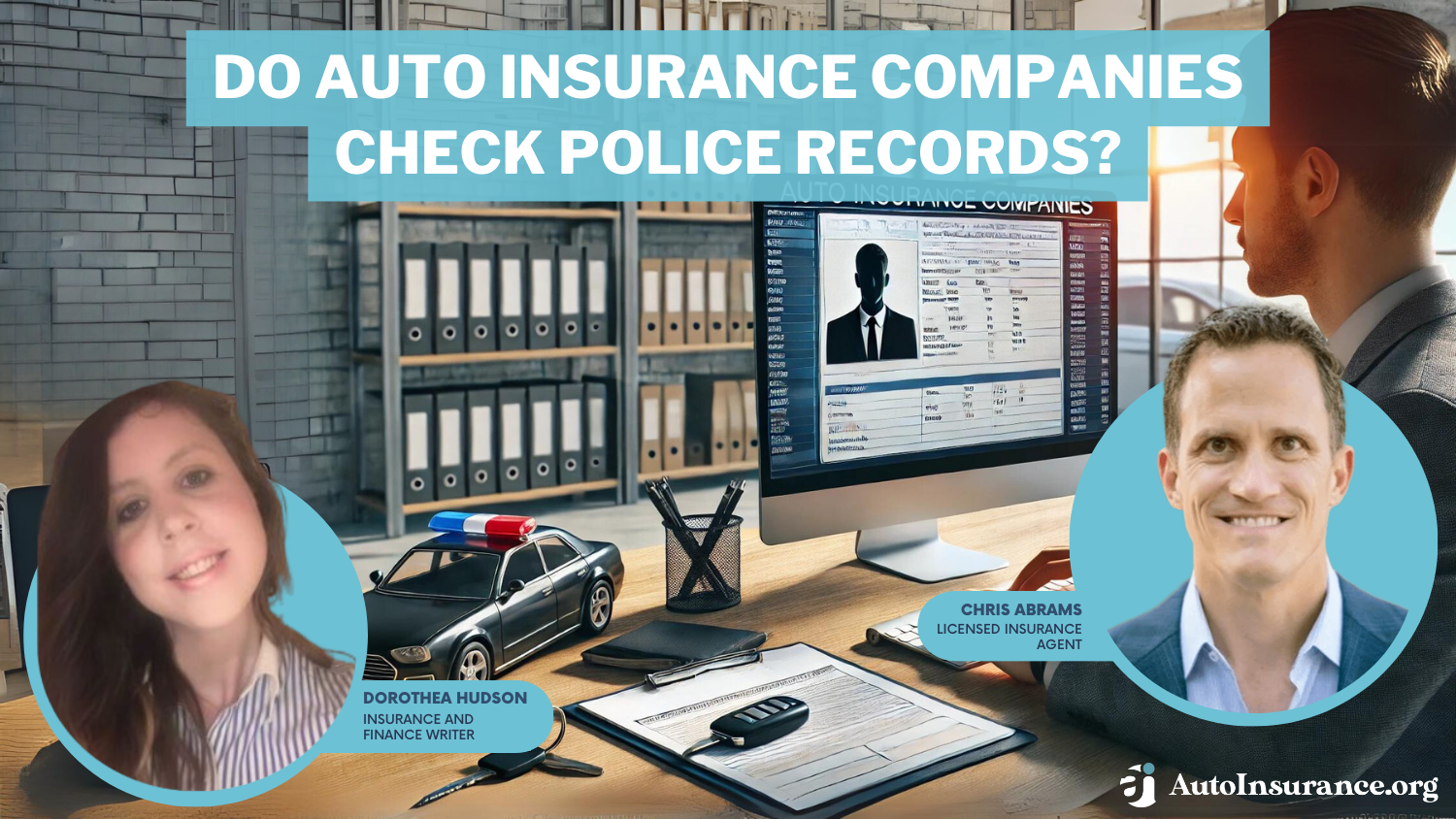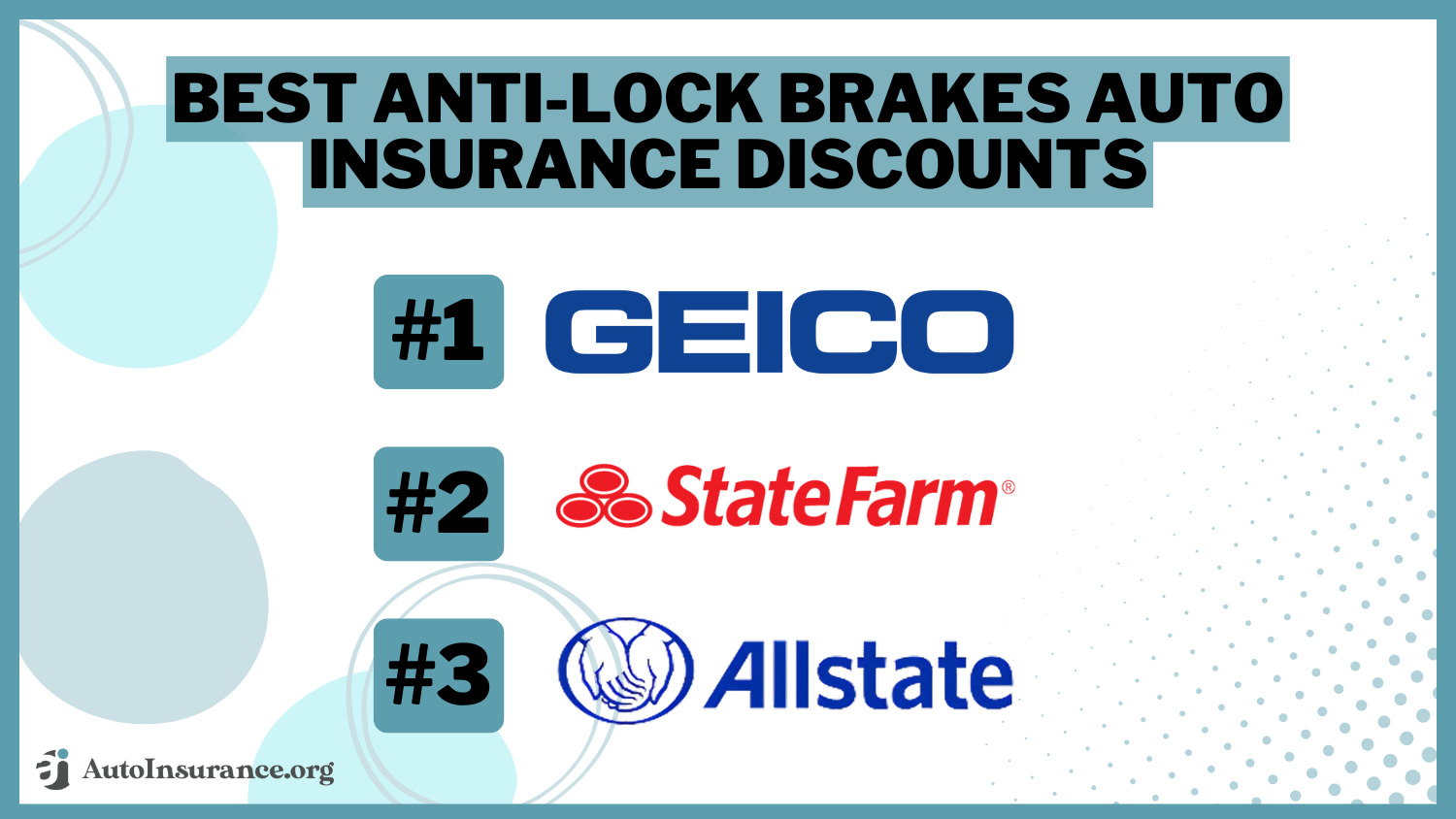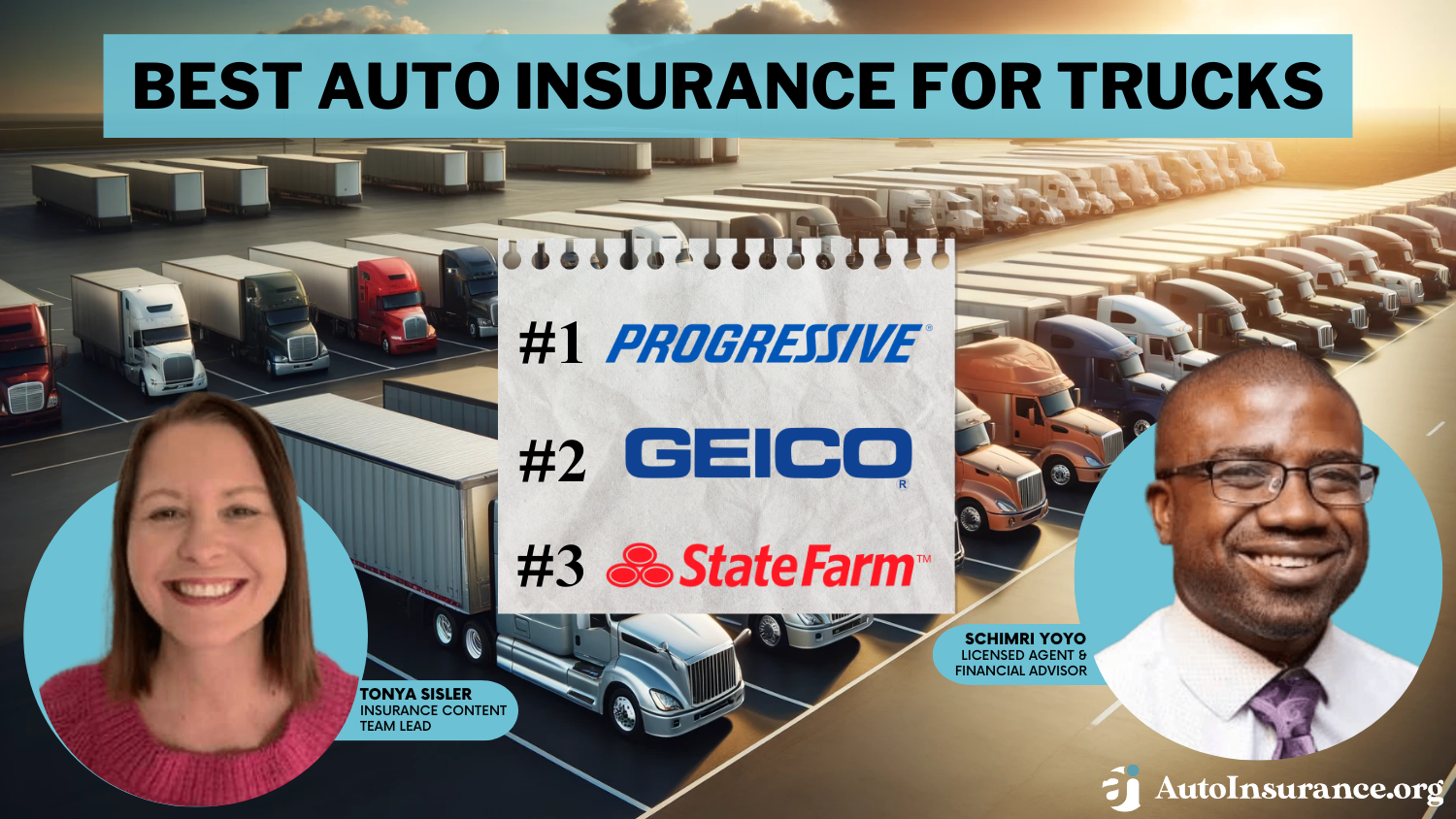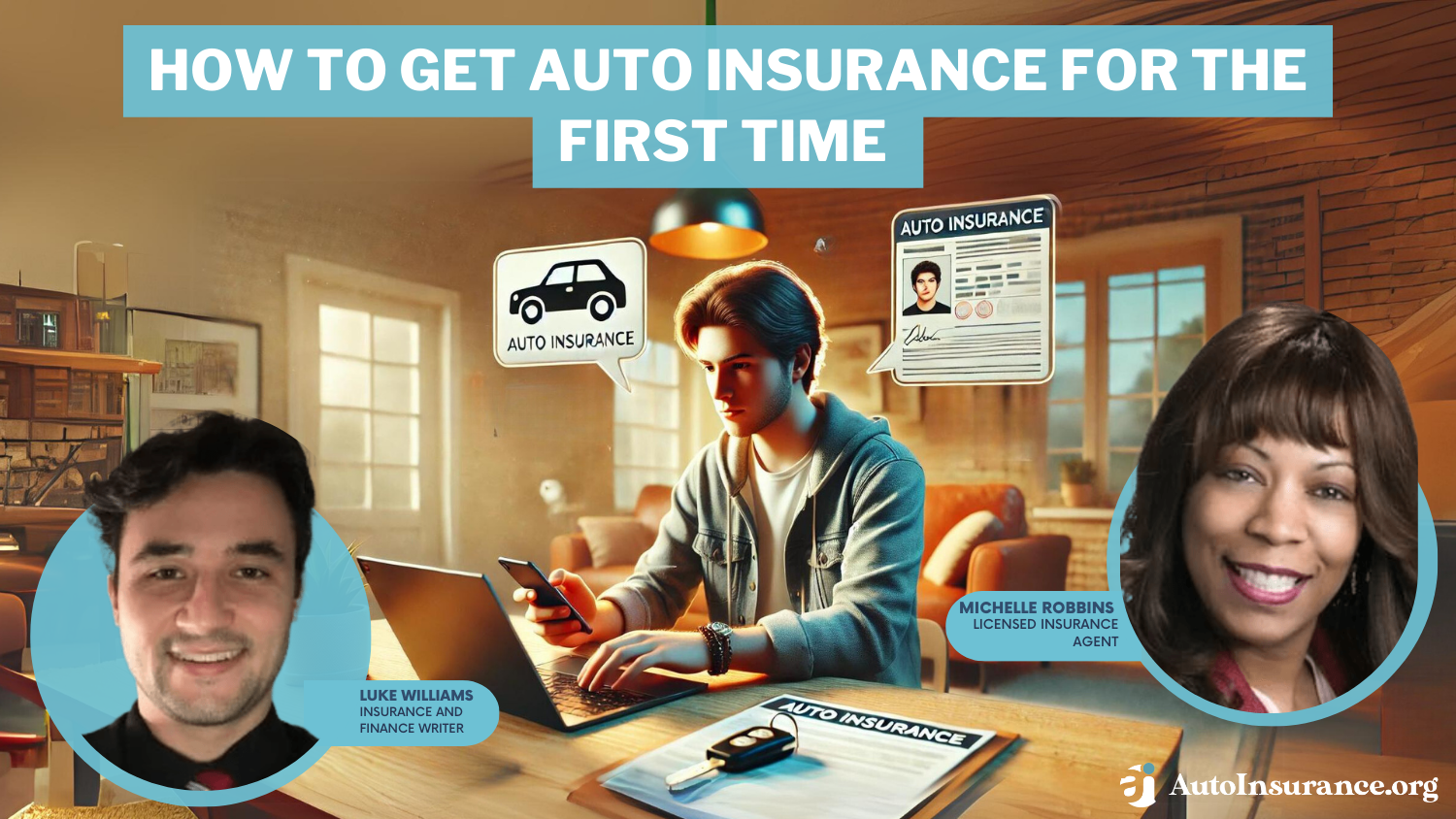What are the average collateral insurance premiums? (2026)
Collateral Protection Insurance is used to pay off the rest of the loan so the lenders do not lose any money on a vehicle if the buyer cannot pay.
Secured with SHA-256 Encryption




Table of Contents
Table of Contents


Insurance Claims Support & Sr. Adjuster
Kalyn grew up in an insurance family with a grandfather, aunt, and uncle leading successful careers as insurance agents. She soon found she has similar interests and followed in their footsteps. After spending about ten years working in the insurance industry as both an appraiser dispatcher and a senior property claims adjuster, she decided to combine her years of insurance experience with another...
Kalyn Johnson


Licensed Insurance Agent
Chris is the founder of Abrams Insurance Solutions and Marcan Insurance, which provide personal financial analysis and planning services for families and small businesses across the U.S. His companies represent nearly 100 of the top-rated insurance companies. Chris has been a licensed insurance agent since 2009 and has active insurance licenses in all 50 U.S. states and D.C. Chris works tireles...
Chris Abrams
Updated December 2024
One of the most exciting times for a consumer is purchasing a new car. For the average consumer, though, you most likely had to buy the finance the vehicle instead of paying for it outright.

If this was the case and you did finance your vehicle, you probably signed a series of documents outlining your responsibilities during the life of the loan.
One of those responsibilities is obtaining and retaining collision and comprehensive coverage on your financed vehicle.
Retaining sufficient auto insurance on a financed vehicle is necessary because you are not the only one with invested interest in the vehicle.
Technically, the bank or credit union that holds your loan actually owns the vehicle, until you pay off your loan, of course.
Until then, they hold an interest in your vehicle, which is called collateral.
If cheap, quick quotes on auto insurance sound good to you, enter your ZIP code into the FREE box located on this web page now!
- CPI is a type of insurance that is offered to lenders to protect the collateral of a new vehicle
- CPI is insurance that is bought if a driver lapses on insurance coverage on the financed vehicle
- Most of the time, CPI is used to pay off the rest of the loan so the lenders do not lose any money
Collateral Protection Insurance Explained
Each bank or credit union that deals in auto loans wants to make sure the property or collateral they have financed is protected. That is why you must provide constant proof of coverage on a financed vehicle.
The lender wants to know you are protecting their investment properly. If, however, you fail to obtain or retain that required insurance, the lender is at a very high risk.
Many insurance companies offer the solution for lenders, which is collateral protection insurance.
CPI covers the lenders if you damage the financed vehicle during the life of the loan and are uninsured. It secures the lenders investment, especially if the vehicle is totaled.
CPI is a valuable and often-used tool when lenders find themselves financing a vehicle that is uninsured or the owner has lapsed on their auto insurance coverage.
Every bank and credit union will provide thorough information regarding CPI and when it is imposed on an auto loan situation.
Free Insurance Comparison
Compare Quotes From Top Companies and Save
Secured with SHA-256 Encryption
How to Avoid CPI
If you maintain the minimum type of insurance for a financed vehicle, and for the entire life of the loan, you will never have to worry about CPI.
The reason CPI would ever be initiated on an auto loan is if you fail to provide coverage for both you and the lender.
The issue with CPI is that if you fail to retain auto insurance, the lender has the right to force CPI coverage onto the loan and by extension you.
The lender will purchase the insurance and add on the price of the monthly premium to your loan payment amount.
Typically, a lender will give you adequate warning about an impending CPI placement on your loan. They will also give you tolerable time to provide proof-of-insurance, which guarantees the collateral is covered.
Do not think you can avoid CPI placement either. The lender has the right to force-place CPI coverage at anytime insurance is lapsed on a financed vehicle.
A force-place is when the lender buys the CPI coverage and passes the cost along to you.
What CPI Covers
Collateral Protection Insurance should not be considered a replacement for regular auto insurance. Most importantly, CPI coverage will only cover the lender’s interests in the collateral, not yours.
Any damages or losses on the collateral will be reimbursed to the lender if CPI has been applied to the loan.
It does not mean you are covered for any of the losses, in fact, most of the time, a reimbursement for losses are not passed along to the financed vehicle or the individual.
Occasionally, a lender will purchase CPI coverage for both themselves and you. However, do not count on it. Most states do not require lenders to provide coverage for you with CPI.
If a lender does not have to provide coverage for you, they probably will not. In this case, you will be solely responsible for any losses on the vehicle.
The best way to avoid the headaches and damages to your finances is to simply purchase the required insurance for a financed vehicle.
What to do if CPI is Added to Your Loan Payments
First off, do not panic. The nice thing about CPI is that if you provide your lender with adequate proof-of-insurance, they will drop the CPI policy and premium from your loan payments immediately.
If CPI is applied to your loan payments, the solution to have them removed is as simple as showing your lender a copy of your insurance card.
If you happen to find yourself in a situation that you cannot find auto insurance, then the CPI premium will be added to your loan payments.
The negative thing about CPI coverage is that the premiums are incredibly expensive.
Not only does a CPI policy probably not cover you in the event of an accident, but also it costs you significantly more than basic auto insurance.
Free Insurance Comparison
Compare Quotes From Top Companies and Save
Secured with SHA-256 Encryption
How a Lender Can Force You to Pay for Coverage
Because the lender has a share of interest in the property or collateral, they are completely within their rights to force you to pay for coverage.
You probably also signed paperwork when you financed the vehicle stating you would maintain adequate auto insurance to provide protection for both you and the lender.
That agreement alone means if you lapse on coverage, you violate the agreement and the lender is now responsible for finding your auto insurance, even if that means they are only looking for insurance for themselves.
For example, the Washington State Legislature has passed specific laws regarding the rights of a lender to purchase coverage on collateral.
Other states, such as the Texas Department of Insurance have also passed laws specifically about CPI coverage rights for lenders. Again, the best way to avoid the hassle of CPI is to buy auto insurance.
The Cost of a CPI Premium
Finding actual auto insurance is a far better option than CPI, for a variety of reasons. However, if you find yourself in a situation where CPI has been added on to your loan, the way a CPI premium is calculated is relatively simple.
First off, the lender will submit data regarding the loan to your state’s department or division of insurance. In response, the state department will issue an amount that the CPI will relatively cost.
Either that or the individual insurance company that the lender purchases the CPI coverage from will provide the figure.
Typically, the premium is a percentage of the total amount of the loan. Depending on how much you still owe on the loan, you may find yourself paying a hefty sum for the CPI premium.
Because CPI coverage is based on each individual auto loan, and is influenced by specific state policies and individual insurance providers, an average premium price is not available.
Instead, look at how much you still owe on your auto loan, contact your state department of insurance, and ask your lender who they purchased CPI coverage from.
Once you have accumulated that information, contact the necessary people, and find out how your CPI premium was calculated.
Every insurance company that deals in CPI coverage can provide specific information about pricing.
The primary reason why CPI coverage is so expensive is that there is no underwriting done on the policy.
That means your driving history, credit history, and personal information is not used to calculate the premium. Only the amount still owed on the loan is used. This hikes up the premium price significantly.
Again, you can buy auto insurance, both collision and comprehensive, for way less than CPI coverage.
For further information regarding auto insurance pricing and how it works, you can contact the Insurance Information Institute.
They can provide further research about how affordable car insurance is available and what you can do to find it.
My Rights and CPI Coverage
Regardless of the lender’s stake in the collateral, you still have rights regarding how much you have to pay for a CPI premium.
Most state departments force lenders to only charge a maximum CPI premium in relation to the maximum amount you owe on the loan.
In addition to limiting the amount you have to pay for CPI coverage, you also have a right to notification regarding the purchasing of CPI coverage.
Most states give lenders a specific number of days to contact you if they have purchased or will purchase CPI coverage.
On average, most states force lenders to provide notice within a month. If you do not receive notice, the lender has violated your rights and you need to contact your state department of insurance.
Another right you have regarding CPI premiums is monthly payments on the CPI coverage. Even though you need auto insurance, you still have a right to pay the CPI coverage in monthly installments.
If your lender adds on the entire 12-month premium in one lump sum, you have a right to fight against that.
You also can contact your state department of insurance for any other complaints or violations you think have occurred regarding CPI premiums and your auto loan.
If you want to avoid CPI coverage and find amazing auto insurance quotes now, simply enter your ZIP code into the FREE box at the bottom of this page!
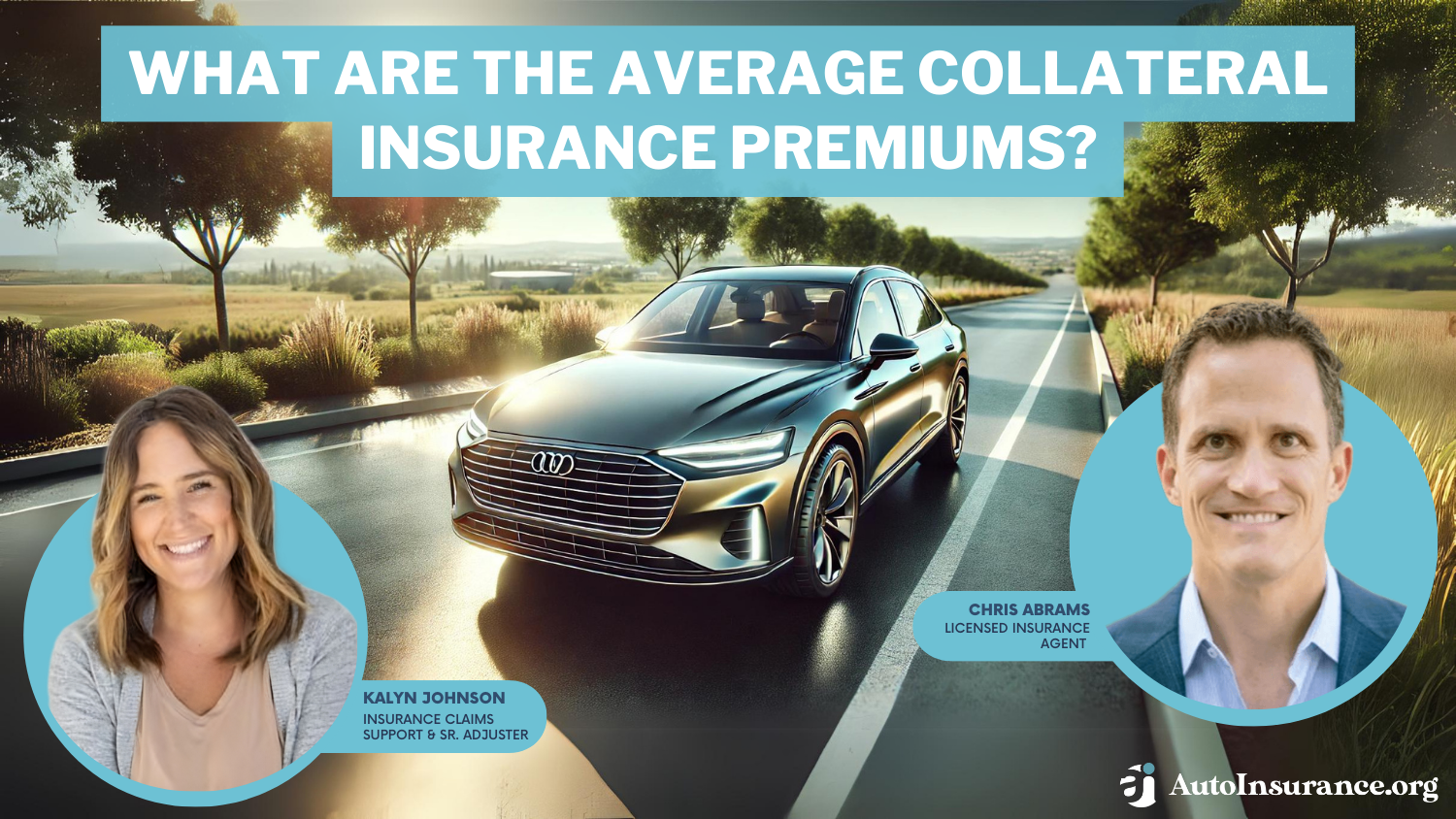
Frequently Asked Questions
What are collateral insurance premiums?
Collateral insurance premiums refer to the amount of money an individual or business pays to secure insurance coverage for their collateral, such as property, vehicles, or equipment, against potential damage or loss.
How are collateral insurance premiums determined?
The determination of collateral insurance premiums depends on several factors, including these six most common:
- The type of collateral
- Its value
- The level of coverage desired
- The location
- The insurance provider
- The individual or business’s risk profile
Insurance companies assess these factors to calculate an appropriate premium.
What is the average cost of collateral insurance premiums?
The average cost of collateral insurance premiums can vary significantly depending on the specific circumstances and the type of collateral being insured. There is no one-size-fits-all answer to this question, as premiums are customized to each individual or business. It is advisable to obtain quotes from different insurance providers to get a better understanding of the potential costs involved.
How can I find the best collateral insurance premiums?
To find the best collateral insurance premiums, consider the following five steps:
- Research Multiple Insurance Providers: Obtain quotes from different insurance companies specializing in collateral insurance to compare their premium rates and coverage options.
- Assess Coverage Needs: Determine the specific coverage requirements for your collateral, considering factors such as the value, risk exposure, and potential hazards or perils.
- Review Policy Terms: Thoroughly review the terms and conditions of each insurance policy, including coverage limits, deductibles, exclusions, and any additional services or benefits offered.
- Seek Professional Advice: Consult with insurance brokers or agents who specialize in collateral insurance to gain expert insights and assistance in selecting the most suitable coverage at competitive premiums.
- Consider Bundling Options: If you have multiple collaterals or insurance needs, explore the possibility of bundling them together with the same insurer. Bundling policies can often lead to discounts or lower overall premiums.
Are collateral insurance premiums a one-time payment, or are they paid periodically?
Collateral insurance premiums are typically paid on a periodic basis, such as annually, semi-annually, quarterly, or monthly, depending on the terms of the insurance policy. The frequency of premium payments will be specified in the policy documents, and it is important to pay them on time to maintain continuous coverage for your collateral.
Get a FREE Quote in Minutes
Insurance rates change constantly — we help you stay ahead by making it easy to compare top options and save.



